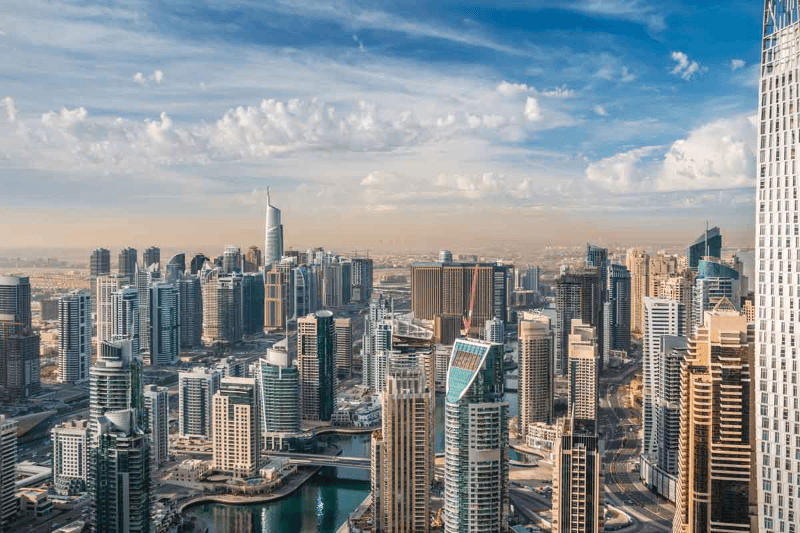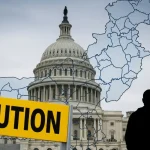
uae gdp growth expected to reach 3 3 in 2024 world bank report reveals
Published under the headline “Growth in the Middle East and North Africa,” every six months this document highlights UAE leadership in terms of economic growth. Research highlighting the importance that the United Arab Emirates (UAE) plays in diversifying its economy and supporting outstanding development throughout its non-oil sectors helps the UAE to become a major force behind economic progress in the surrounding geographical area.
One of the primary factors determining the United Arab Emirates’ bright economic future is the fast rise of sectors unrelated to oil. The World Bank forecasts the United Arab Emirates will remain enjoying high real GDP per capita growth rates of 2.5% in 2024 and 3.4% in 2025. These big businesses will help the United Arab Emirates to rely less on oil and establish conditions suited for sustainable development.
By means of its strategic initiatives, which comprise the Abu Dhabi Economic Vision 2030 and the We the UAE 2031 Vision, the United Arab Emirates (UAE) has already established the road for a knowledge-based economy. Already, that basis is laid here. Under these guidelines, development of the private sector and creativity get the most focus. These events have two goals: they raise the nation’s global competitiveness simultaneously and they give businesses and investors new opportunities, thereby promoting new prospects. But the United Arab Emirates’ (UAE) economic diversification has generated not just jobs but also other money, thereby strengthening the country’s economic foundation even more.
Controlling financial excesses and weighing current account balance
According to World Bank projections, the current account surplus of the United Arab Emirates is likely to somewhat drop in 2024. This is a mirror reflecting the expected decreasing surplus. Conversely, the United Arab Emirates has been able to purposefully diversify into the non-oil sector, therefore reducing the effects of these problems. This strategy has meant that there is no national economic risk whatsoever.
They offer the financial instruments the United Arab Emirates need to continue making very large investments in many aspects of the economy. Moreover, these surpluses allow the nation more latitude to fulfill its long-term development objectives without surrendering its economic stability so as to help it to negotiate the world economic uncertainty and attain its goals.
The ability of the United Arab Emirates to withstand economic shocks is among the most important factors allowing the Middle East and North Africa (MENA) area to flourish generally. From 1.8% in 2023 to 2.2% in 2024, the area’s total gross domestic product is predicted to rise somewhat, according to a World Bank study.
Regarding this, growth projections are This matched estimates of the World Bank. It is projected that the Gulf Cooperation Council (GCC) members will be the ones causing significant rates of this kind of increase. Not least is the considerable acceleration of these countries’ economic growth. Forecasts of GCC growth by 2025 show 4.2% over 1.9% in 2024 and just 0.5% in 2023. This is much above the 1.9% increase rate of preceding years. With its diverse economy and deliberate investments in high-growth industries, the United Arab Emirates is projected to be quite significant in guiding the development of this regional economic story. This is true since the UAE encourages industries with great future growth.
Reaching success in both its oil and non-oil sectors, the United Arab Emirates (UAE) has also offered other Gulf Cooperation Council (GCC) countries like Saudi Arabia and Qatar, also involved in ambitious economic diversification programs, as an example. The standard the UAE developed is According to Bank studies, the Gulf Cooperation Council (GCC) is equipped to resist economic upheavals since it is agile and strong. Moreover, the report forecasts that the regional average annual growth rate would reach 4.2% by 2025. The United Arab Emirates (UAE) is spearheading this endeavor, so the Gulf Cooperation Council (GCC) is positioned for long-term sustainable development. This is such since the GCC depends increasingly on industries unrelated to oil and less on it.
There can be conflicting opportunities for the economy of MENA countries apart from the GCC.
Unlike the non-GCC countries in the Middle East and North Africa (MENA), who have a less positive view of their economies, the United Arab Emirates and other Gulf Cooperation Council members are set for significant economic expansion. Algeria and Iraq, two nations who export oil, are projected to suffer a slowing down in their economic growth as the World Bank projects a decline from 3.2% in 2023 to 2.7%.
According to World Bank calculations, this is indeed One can grasp this slow down by means of several challenges, including political instability, inadequate economic management, and continuous volatility in the world oil markets. Considering the cause of this delay, both of these components make sense. Moreover aggravating the path of economic recovery in some of these countries are the challenges in executing significant structural adjustments.
Especially in countries that import oil, the economic situation of the Middle East and North Africa region is far more complicated. Among other countries they encompass Egypt, Jordan, and Tunisia. From 3.2% in 2023 to 2.1% in 2024, the growth rate in these countries is expected to drop in view of the difficulty they face in adjusting to rising energy cost, high inflation, and disruptions in world supply networks. This is accurate since right now these nations deal with particular difficulties. The World Bank emphasizes notably the need of implementing structural changes and helping private sector investment in these nations to create economic resilience over the long run and continued development.
The United Arab Emirates and the Future of the Middle East and North Africa Region
The United Arab Emirates (UAE) is not only deciding the course of the country but also the Middle East and North Africa (MENA) area is usually benefiting economically. This suggests a significant shift. Their forward-looking economic policies, concentration on innovation, and sustainability issues enable the United Arab Emirates (UAE) models other countries follow.
The leadership of the country has attained a somewhat high degree of regional growth in domains including environmental sustainability, technical innovation, and infrastructure development. This has led to a somewhat high national benchmark being developed. Starting projects like the Mohammed bin Rashid Al Maktoum Solar Park and the UAE Green Growth Strategy, the United Arab Emirates (UAE) aims to climb to top position on the world scene. Among the projects the UAE started are these ones: These projects reveal the United Arab Emirates’ will to adopt a green economy.
Moreover, the United Arab Emirates’ (UAE) notable involvement in international bodies as the United Nations and the World Trade Organization helps to increase their reputation among other nations. The ability of the nation to attract foreign direct investment, promote innovation, and create solid international alliances will keep pushing its economic development and will assist to establish its place as a significant participant in the world economy. The nation can do all said here.
The United Arab Emirates present a great future and many opportunities
According to the most recent MENA Economic Update issued by the World Bank, the United Arab Emirates (UAE) has pretty bright economic prospects. The national GDP should grow to 3.3% by 2024 and to 4.1% in 2025. Thanks to its strategic focus on diversifying its economy, boosting innovation, and helping the expansion of industries outside of the oil business, the nation leads in these spheres. This has let the nation show a field leader image. The United Arab Emirates (UAE) keeps a considerable degree of transparency to grab fresh opportunities despite global economic challenges. Its controlled finances, forward-looking strategies, dedication to sustainable development as well as policies help to explain this.
Emphasizing innovation, sustainability, and global leadership, the United Arab Emirates (UAE) will be highly crucial in ensuring that economic growth will continue even as the country keeps working toward its long-term development objectives. This is thus since the UAE assigns three areas tremendous relevance. Thanks to their proactive approach to negotiate the difficulties presented by the global economy and their strategic investments in high-growth sectors, the United Arab Emirates (UAE) is in a great position to have a rich and bright future not only for itself but also for the whole Middle East and North Africa (MENA) region.



